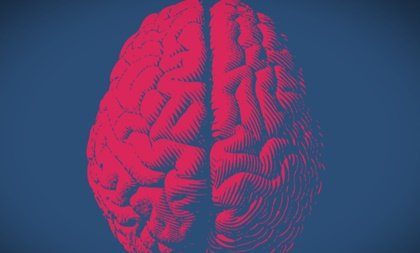Cognitive Characteristics of an Abuser

Neuroscience has allowed us to take a look at the main cognitive characteristics of an abuser in a romantic relationship. Now, they don’t correspond to a certain gender exclusively: they apply to men and women equally. In other words, these features don’t seem to be related to feminine or masculine aspect. Rather, they have to do with how the brain works.
Of course, in each case of abuse, social, cultural, and psychological aspects each have an influence on the mind of the abuser. However, the frequent pattern of this type of behavior forms specific neuronal connections. Thus, there’s a specific way in which abusers process thoughts. That’s what we mean when we say cognitive characteristics of an abuser.
Through various studies, science has established that abusers in relationships tend to have some cognitive distortions. These are erroneous mental frameworks that they use to interpret facts. With this in mind, experts have created a list of the main cognitive characteristics of an abuser.
“You’re in a relationship to be happy, to smile, to laugh, and to make good memories. Not to be constantly upset, to feel hurt, and to cry.”
-Anonymous-

Cognitive distortions and abuse
In a study carried out by the University of the Basque Country, researchers evaluated eleven previous studies. They analyzed 180 abusers who went to prison. From this, they concluded that there were some recurrent cognitive distortions in the abusers.
These cognitive distortions have to do with the way they rationalize or justify behaviors that are socially reprehensible. For example, they could have a convincing explanation as to what led to the abuse. These reasons make them seem as if it was a logical and acceptable behavior. The main cognitive distortions the researchers found were:
- Denial: Abusers denied that the assaults or abuse were a problem the needed to address. In fact, they considered it normal and unimportant.
- Minimization: They downplayed the aggression. For example, they’d say, “It was just a slap on the cheek” or “Words don’t hurt anyone”.
- Attributing blame to other people: Often, they’d say that the other person was the one who caused them to act a certain way.
Other cognitive characteristics of an abuser
Various studies have demonstrated other cognitive characteristics of an abuser. They consist of traits that are frequently found in people who normalize frequent aggressive behavior towards their partner. The most relevant are:
- Medium or low verbal intelligence: In general, abusers have less proficient language skills than their normative age group.
- Memory: In the investigations, the abusers showed less ability to store and retrieve non-verbal information. In general, they misremember faces and physical details in their environment.
- Poor executive functions: Executive functions have to do with planning, executing, and regulating behavior. In abusers, these functions are weaker and ineffective.
- Emotional decoding: Aggressors have greater difficulty identifying facial expressions. Furthermore, they have a harder time differentiating emotions and feelings such as fear, anxiety, anguish, etc.
Holtzworth and Munroe designed a personality type of abusers. Their study is based solely on the cognitive characteristics of male abusers. However, that’s because all of the subjects in their study were male. Nevertheless, we can still apply the conclusions to many women.

The brain and behavior
It’s important to highlight that although researchers have defined the cognitive characteristics of an abuser, up to now, there is still no fully conclusive study of this aspect. So, just as there is research that supports the previous arguments, there are also some that deviate greatly.
It’s worth emphasizing the fact that the brain is an organ with great plasticity. In other words, this means that events, experiences learning, etc. can make great changes to the brain. Therefore, we can hardly say that a person has fixed or unchangeable traits. Human beings are dynamic.
On the other hand, with this type of phenomena, the social environment and previous experiences usually have a greater weight. Therefore, it’s not uncommon for someone who’s been abused to become an abuser, if the conditions are right. Also, sometimes there can be environments that tolerate or allow aggression, which can also have an effect.
Remember that everyone has aggressive impulses they’re born with. However, you can mold them and configure them according to your upbringing.
Instead of condemning some type of people in particular, what we must do is eradicate certain styles of parenting and education that teach through aggression and abuse. By doing so, we’re promoting them as a valid means to get what you want from other people.
Neuroscience has allowed us to take a look at the main cognitive characteristics of an abuser in a romantic relationship. Now, they don’t correspond to a certain gender exclusively: they apply to men and women equally. In other words, these features don’t seem to be related to feminine or masculine aspect. Rather, they have to do with how the brain works.
Of course, in each case of abuse, social, cultural, and psychological aspects each have an influence on the mind of the abuser. However, the frequent pattern of this type of behavior forms specific neuronal connections. Thus, there’s a specific way in which abusers process thoughts. That’s what we mean when we say cognitive characteristics of an abuser.
Through various studies, science has established that abusers in relationships tend to have some cognitive distortions. These are erroneous mental frameworks that they use to interpret facts. With this in mind, experts have created a list of the main cognitive characteristics of an abuser.
“You’re in a relationship to be happy, to smile, to laugh, and to make good memories. Not to be constantly upset, to feel hurt, and to cry.”
-Anonymous-

Cognitive distortions and abuse
In a study carried out by the University of the Basque Country, researchers evaluated eleven previous studies. They analyzed 180 abusers who went to prison. From this, they concluded that there were some recurrent cognitive distortions in the abusers.
These cognitive distortions have to do with the way they rationalize or justify behaviors that are socially reprehensible. For example, they could have a convincing explanation as to what led to the abuse. These reasons make them seem as if it was a logical and acceptable behavior. The main cognitive distortions the researchers found were:
- Denial: Abusers denied that the assaults or abuse were a problem the needed to address. In fact, they considered it normal and unimportant.
- Minimization: They downplayed the aggression. For example, they’d say, “It was just a slap on the cheek” or “Words don’t hurt anyone”.
- Attributing blame to other people: Often, they’d say that the other person was the one who caused them to act a certain way.
Other cognitive characteristics of an abuser
Various studies have demonstrated other cognitive characteristics of an abuser. They consist of traits that are frequently found in people who normalize frequent aggressive behavior towards their partner. The most relevant are:
- Medium or low verbal intelligence: In general, abusers have less proficient language skills than their normative age group.
- Memory: In the investigations, the abusers showed less ability to store and retrieve non-verbal information. In general, they misremember faces and physical details in their environment.
- Poor executive functions: Executive functions have to do with planning, executing, and regulating behavior. In abusers, these functions are weaker and ineffective.
- Emotional decoding: Aggressors have greater difficulty identifying facial expressions. Furthermore, they have a harder time differentiating emotions and feelings such as fear, anxiety, anguish, etc.
Holtzworth and Munroe designed a personality type of abusers. Their study is based solely on the cognitive characteristics of male abusers. However, that’s because all of the subjects in their study were male. Nevertheless, we can still apply the conclusions to many women.

The brain and behavior
It’s important to highlight that although researchers have defined the cognitive characteristics of an abuser, up to now, there is still no fully conclusive study of this aspect. So, just as there is research that supports the previous arguments, there are also some that deviate greatly.
It’s worth emphasizing the fact that the brain is an organ with great plasticity. In other words, this means that events, experiences learning, etc. can make great changes to the brain. Therefore, we can hardly say that a person has fixed or unchangeable traits. Human beings are dynamic.
On the other hand, with this type of phenomena, the social environment and previous experiences usually have a greater weight. Therefore, it’s not uncommon for someone who’s been abused to become an abuser, if the conditions are right. Also, sometimes there can be environments that tolerate or allow aggression, which can also have an effect.
Remember that everyone has aggressive impulses they’re born with. However, you can mold them and configure them according to your upbringing.
Instead of condemning some type of people in particular, what we must do is eradicate certain styles of parenting and education that teach through aggression and abuse. By doing so, we’re promoting them as a valid means to get what you want from other people.
All cited sources were thoroughly reviewed by our team to ensure their quality, reliability, currency, and validity. The bibliography of this article was considered reliable and of academic or scientific accuracy.
- Fernández-Montalvo, J., & Echeburúa, E. (1997). Variables psicopatológicas y distorsiones cognitivas de los maltratadores en el hogar: un análisis descriptivo. Análisis y Modificación de Conducta, 23 (88), 151-180.
This text is provided for informational purposes only and does not replace consultation with a professional. If in doubt, consult your specialist.







